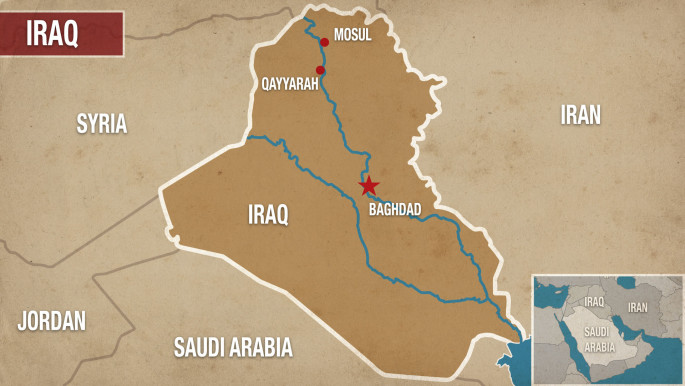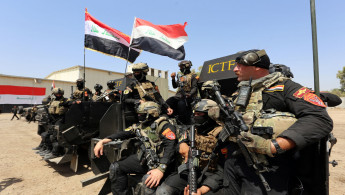Iraqi special forces arrive outside Mosul as battle looms
Hundreds of Iraqi special forces arrived at the front line near the Islamic State-held city of Mosul on Friday, constituting one small part of the thousands of soldiers that have massed around the country's second-largest city ahead of an operation to retake it from militants.
"Yesterday, our commander told us: This is it, the liberation of Mosul is beginning," a special forces sergeant told The Associated Press, speaking on condition of anonymity because he was not authorised to brief the media.
Iraqi officials have said their preparations for the Mosul offensive were coming to completion.
The Iraqi troops interviewed by AP were camped in a field across the Great Zab River separating Nineveh province from Iraq's Kurdistan region.
Nearby, other members of their unit were moving into an abandoned village, converting homes into a barracks for temporary camp.
The large volume of forces needed for the Mosul fight – Iraqi and coalition officials say at least 30,000 will take part – has overcrowded the few military bases along the Mosul front line.
The sergeant said his unit traveled in a convoy from Tikrit to the front near the district of Khazer, on the edges of the Nineveh plain about 30 kilometers (18 miles) from Mosul.
 |
|
| [Click to enlarge] |
Along the way, he saw thousands more Iraqi soldiers being deployed, he said.
"We are here for the Mosul battle, and we won't return home until we finish it," he added.
Qayyarah air base south of Mosul is expected to be the main hub of operations, but Iraqi army convoys, including a unit of the elite special forces, could also be seen moving to front-line positions east of the city.
The international coalition said Friday it also is conducting a larger number of airstrikes in the area, launching more than 50 in and around Mosul over the past two weeks.
Mosul, once home to more than 2 million people, fell to IS fighters more than two years ago. The operation to retake it is expected to be the most complex yet for Iraq's military.
In addition to Iraq's conventional military, other participants expected to participate in the battle are Shia militias, Kurdish forces known as the Peshmerga, Sunni tribal fighters and federal police forces.
"We would like to tell (civilians in Mosul) we are coming very soon, god willing," said Ahmed Hussein, a special forces solider who was perched on the hood of a black armoured Humvee.
"My advice to (the IS militants) is to run away. It's better for them to run," he said, predicting the fight will only last a few days.
Mosul is the last urban area in Iraq under militant control. Since IS overran large parts of northern and western Iraq in the summer of 2014 for the group's self-proclaimed caliphate.
Iraqi ground forces, backed closely by the coalition, have retaken more than half of the territory.
The gains have been shaky at times. A group of soldiers now on the Mosul front line joked that they liberated the Baiji oil refinery in central Iraq at least five times before it held.
However, in recent battles south of Mosul, IS fighters largely fled and launched only limited, small-scale counterattacks.
Over the past week, coalition and Iraqi officials said they have seen small numbers of IS fighters fleeing Mosul into neighboring Syria.
The Syrian anti-IS activist group, Raqqa is Being Slaughtered Silently, on Thursday said that 10 buses and 35 SUVs with Iraqi license plates carrying IS fighters and their families arrived in the militants’ Syrian stronghold of Raqqa.
Twitter Post
|
It's still unclear, however, if the militants will put up a strong fight for the city.
As Iraqi forces have moved to isolate Mosul, residents report that IS fighters have begun reinforcing trenches around the city and setting booby-trapped explosives along main thoroughfares.
From a Kurdish Peshmerga base atop a hill along the front line, Lt. Col. Mohhesin Hassan said he's watched the steady buildup of Iraqi ground forces over the past week.
"It's been more than two years since we've seen Iraqi forces in this area like this," he said. "But, whenever the battle begins, we hope it will be over quickly. We're tired of fighting."
Agencies contributed to this report





 Follow the Middle East's top stories in English at The New Arab on Google News
Follow the Middle East's top stories in English at The New Arab on Google News


